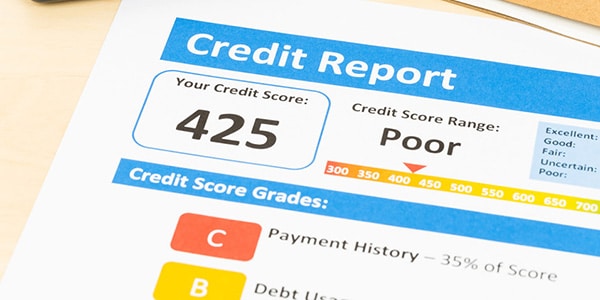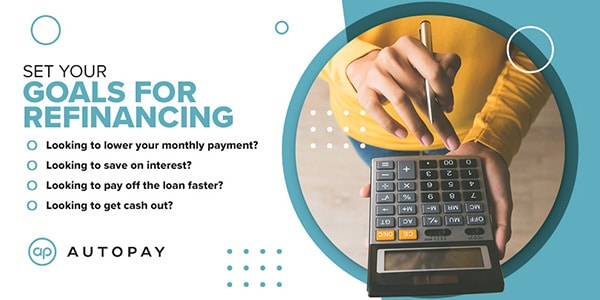Yes, you can refinance your car loan even if you have a lower credit score. But is it worth it? When refinancing with a lower credit score, you must consider all your options. However, there is potential to save money by refinancing your car loan.
You need to begin with understanding how credit scores work and what you can do to improve yours. A higher credit score is essential for getting the best interest rates on a loan because a higher interest rate means you’ll pay more in the long run.
You also need to ask yourself some important questions like what are your refinancing goals, can you secure a lower interest rate and are the new loan terms better than your current one?
If you’re unsure whether refinancing is worth it or want to explore it as an option, we’ll examine how a lower credit score affects your chances of getting approved for a car refinance and how you can increase your chances.
Understanding Credit
We’ll discuss credit scoring and what factors influence your score. Knowing more about credit can help you make better choices when borrowing money.

Credit scores explained
Your credit score is a number that shows your level of creditworthiness — or how likely you are to repay a loan. The higher your score, the better your chances of being approved for a loan with a lower interest rate. A FICO® score is the most widely used credit scoring model and assigns a number between 300 and 850.
- Excellent: 800–850
- Very Good: 740–799
- Good: 670–739
- Fair: 580–669
- Poor: 300–579
A lender takes more than just a credit score into consideration – so even if your score falls in the lower range, it’s still possible to qualify for refinancing.
How credit scores are determined
Credit scores are calculated using many factors, each weighted differently. The following is a list of considerations that affect your credit:
- Payment history (35%) – The less payments missed, the better.
- Utilization rate (30%) – How much of your total available credit is free.
- Length of credit history (15%) – 12 months or more is best.
- New credit (10%) – Recently acquired loans, credit lines and credit cards.
- Credit mix (10%) – Showing you can manage different kinds of credit well.
It’s always a good idea to check your credit each year to make sure all of these factors are reported correctly.
How to check a credit score
If you’re considering auto loan refinancing and you think you have a low credit score, the first thing to do is check your credit score. You can check your credit score online for free or use this form to check it by mail for free. You can do this free credit check once every year.
Checking your credit score tells you where you stand. You might also be fortunate enough to find that your score is not as low as you thought. If that’s the case, you might have a better chance of being approved for a loan with a lower interest rate. On the other hand, if it’s lower than you thought, don’t worry — there are still things you can do to improve your chances of being approved.
The important thing is having the information, as it will allow you to make informed decisions.

The reasons for a poor credit score
There are several reasons why your credit score might be low, including:
- Late or missed payments – When you miss payments on your bills, it can negatively impact your credit score. In addition, repeatedly missing payments can result in your account being sent to collections, damaging your score even further.
- Collection accounts – If you have any unpaid debt that has been sent to collections, this will be added to your credit report and lower your score.
- High balances – Carrying a high balance on your credit cards can also lower your score.
- Length of credit history – If you haven’t been using credit for very long, you might not have much credit history to show.
- New accounts – Opening too many new accounts at once can lower your score.
- Bankruptcy filing – A bankruptcy filing will stay on your credit report for seven years and will significantly impact your credit score as lenders will see you as a high-risk borrower.
According to Forbes, there are also reasons why responsible people might have low credit scores. One way is having a single credit card that drives up utilization, which is the amount of credit you’re using compared to the amount of credit you have available.
For example, if you have a $5,000 credit limit and use $3,000 of that, your utilization ratio is 60 %. According to Experian, the average utilization rate is 17.0 % among consumers with FICO® credit scores of 780, which is in the “very good” zone for credit ratings.
An excellent way to control this ratio is to keep your balances low. You can also grow your available credit if you open a new line of credit or get a credit limit increase.
Knowing why your credit score is low can help you make a plan to improve it.
Improving your credit score
There are many things you can do to improve your credit score. Try these tips:
- Make all your payments on time – This is the most important factor in determining your credit score, so it’s crucial to make all your payments on time, every time.
- Keep your balances low – Keeping your balances low will help improve your credit utilization ratio, which is important for determining your credit score.
- Avoid opening too many new accounts at once – Opening too many new accounts at once can cause you to appear riskier to lenders and lower your credit score.
- Check your credit report regularly – Checking your credit report regularly can help you catch any errors or inaccuracies that might negatively impact your score.
- Consolidate your debt – Consolidating your debt with a bank or credit union could help you pay off debt faster.
Once you’ve done everything in your power to improve your credit score, it’s time to consider what your goals are with refinancing and some other important factors.
Before Refinancing Your Car Loan
Think about your goals, the terms of your current loan and other important factors with refinancing your car loan.

Goals for refinancing
It’s important to know what your goals are. Ask yourself questions like:
- Am I looking to lower my monthly payment? – This can help to alleviate some financial stress, but keep in mind that it could extend the length of your loan. You might also pay more in interest over the life of the loan.
- Am I looking to save on interest and pay off the loan faster? – A shorter-term loan can help pay off your loan sooner and save on interest, but it might mean that your monthly payments are higher. This is advisable if you can afford the higher payments.
- Am I looking to get cash out? – You might be able to get cash back when you refinance your car loan, but keep in mind that this will likely increase the interest you pay over the life of the loan.
Knowing these goals will help you determine what type of loan is best for you. In addition, it will give you direction when working with a lender.
Terms of your current loan
You’ll need to know the terms of your current loan before you can refinance. This includes things like:
- Balance of your loan
- Interest rate
- Length of the loan
- Monthly payment
You’ll also need to know the value of your car so you can determine how much equity you have. You can use a car valuation tool to get an estimate.
Be aware of fees
There are a few fees to be aware of when refinancing your car loan. These can come from the new lender or the old one. The new lender might charge application, processing and origination fees. The old lender might charge an early termination fee or other fees. You might be able to negotiate these away in some cases, but they’re still something to be aware of.
Understand what you can afford
Knowing what you can afford before starting the refinancing process is important. Remember that just because you’re approved for a loan doesn’t mean you have to take it. Only borrow what you need and what you can afford to pay back.
Calculate your monthly car payment by considering the loan amount, interest rate and length of the loan. Or use a refinance car loan calculator to get a quick idea. Then, use a budgeting tool to see if you can comfortably afford the new payment.
Strategies to Get Approved for a Refinance Loan
If you’re looking to refinance your car loan with a low credit score, you can do a few things to improve your chances of approval. Here are a few strategies.

Improve your credit score
We’ve already discussed how you can start to improve your credit. However, improving your credit score will take time and depends on why it’s not so great.
So, if your lower credit rating is due to a lack of credit history, you might be able to fix that by using a credit builder loan or becoming an authorized user on another person’s credit card. If your credit score is low because of high utilization, you can try to pay down your debt or get a debt consolidation loan.
On the other hand, if you have a history of non-payment, it will take some time and effort to improve your credit score. So the most important thing is to make all your payments on time going forward.
Shop around
Shopping around is essential when looking to refinance your auto loan with a low credit score. Not all lenders have the same standards, and some might be more willing to work with you than others. Therefore, it’s a good idea to compare offers from a few different banks, credit unions and other lenders before you make a decision.
When you’re comparing offers, be sure to look at more than just the interest rate or monthly payment. Other factors like fees and loan terms can affect the overall cost of the loan. For example, a low-interest rate with a long loan term might cost you more in the long run than a higher interest rate with a shorter term.
Of course, if your goal is to save on interest, this won’t work. However, it might be a good option if you’re hoping to decrease monthly payments to relieve financial pressure.
Get a cosigner
If you’re having trouble getting approved for a loan on your own, you might be able to get approved with a cosigner. A cosigner is somebody who agrees to sign the loan with you and is responsible for making payments if you can’t.
This will help improve your chances of being approved because it shows that you have someone else who is willing to take on the risk. Your prospective cosigner should have a good to excellent credit score and show enough monthly income to make the payments if necessary.

Is Refinancing Worth It?
Refinancing your car loan with poor credit can be a good way to save money on interest, lower your monthly payments or both. However, it’s not always the best option, and there are a few times when you shouldn’t refinance.
Refinancing is probably not a good idea if you’re upside down on your loan, meaning you owe more than the car is worth. This is because you could still owe the same amount of money (or even more) after refinancing.
You should also avoid refinancing if you’re close to the end of your loan term. This is because you’ll likely have to pay fees and closing costs, negating savings from a lower interest rate. If you’re only a short time away from paying off your car loan, you’ve also already paid most of the interest.
This is because most auto loans front-load interest, meaning most of the interest is paid at the beginning of the loan. If you’re nearing the end, you’re working on the principal.
Refinancing When It’s the Best Option for You
Refinancing your car loan with a low credit score can be a good way to save money on interest, lower your monthly payments or both. However, it’s not always the best option, and there are several factors to consider before refinancing.
For example, if you’re upside down on your loan or close to the end of your term, refinancing might not be worth it. In addition, it’s important to shop around for the best deal. Lastly, always keep your financial goals in mind and ensure that refinancing is the best option for you.

